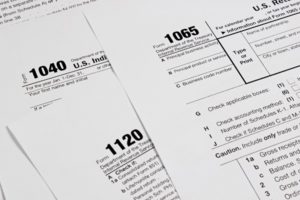Things to Consider for Your 2015 Capital Gains Tax
There are all kinds of investors in the world. Some are looking to make a quick buck by buying and then quickly selling stocks as soon as they increase in value. Other investors buy stocks with an eye toward the future, which means they are in it for the long haul.
In any case, anyone who invests wants to be successful at it. It’s a great feeling to buy stock in a company and see that stock increase in value. However, at some point if you plan on selling that stock and cashing in or your gains, you will have to give a portion of those gains to the taxman. What percentage you will owe will depend on the size of your gain and how long you have owned the stock.
The government wants investors to hold onto their stocks longer. To encourage this they have a lower tax percentage on stocks held longer than a year. Whether you’re a quick turnaround trader or a long-term investor here’s what you should be aware of in 2015 for your capital gains taxes.
First, generally all you need to know to determine your capital gains is the difference between what you paid for the stock and how much you sold it for. When you know that amount then you can calculate the tax. Your tax rate will depend on which bracket you’re in. There are three that apply:
- If your ordinary income puts you in the 10-15 percent tax bracket, then your long-term capital gains rate is 0 percent.
- If your ordinary income falls in one of the 25, 28, 33, or 35 percent tax brackets then your long-term capital gains rate is 15 percent.
- If your ordinary income is in the 39.6% tax bracket, then your long-term capital gains rate is 20%.
There are a few other caveats to remember. For high-income earners, there is an additional 3.8 percent surtax on net investment income. Also, you only pay taxes on the net of your capital gains, which can make a big difference if you sell more than one stock in a year. If you want to learn more about capital gains taxes then please contact GROCO for more answers. Click here or call us at 1-877-CPA-2006.
What Should You Do if You Can’t Pay Your Tax Bill on Time?
What Should You Do if You Can’t Pay Your Tax Bill on Time? The 2019 tax season is in full swing and it’s already come with several changes and surprises. One of the biggest surprises is the number of taxpayers that are either getting a much smaller refund, or not getting a refund period. However,…
Could This Year’s Tax Refund Be Bigger Than Last Year’s?
Could This Year’s Tax Refund Be Bigger Than Last Year’s? If you’ve heard anything about the 2019 tax season, it’s probably that refund amounts are way down. That storyline has made a lot of news. And opponents of the Tax Cut and Jobs Act (TCJA) have definitely used it as “proof” that the changes were…
Could These Tax Deductions Save You Big?
Could These Tax Deductions Save You Big? It’s tax time. Of course, you know that already, unless you’ve been hiding under a rock for the last several weeks. Tax time means refund time, right? Not for everyone, but in most cases, yes. But so far this year, refunds are down and many taxpayers have been…
Top Ways to Cut Taxes in Retirement
Top Ways to Cut Taxes in Retirement When you think of retirement you tend to think of pleasant things. Perhaps you dream about living out your days on a sunny beach or sailing around the world in your luxurious yacht. Maybe you plan to travel the world or maybe you just want to relax and…




